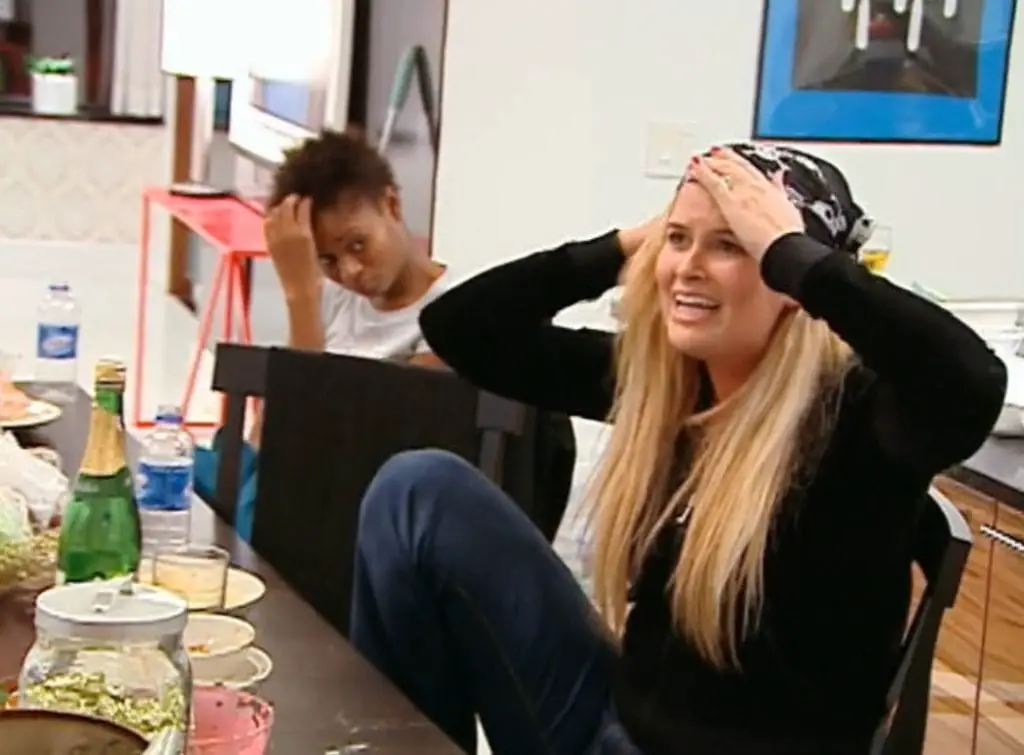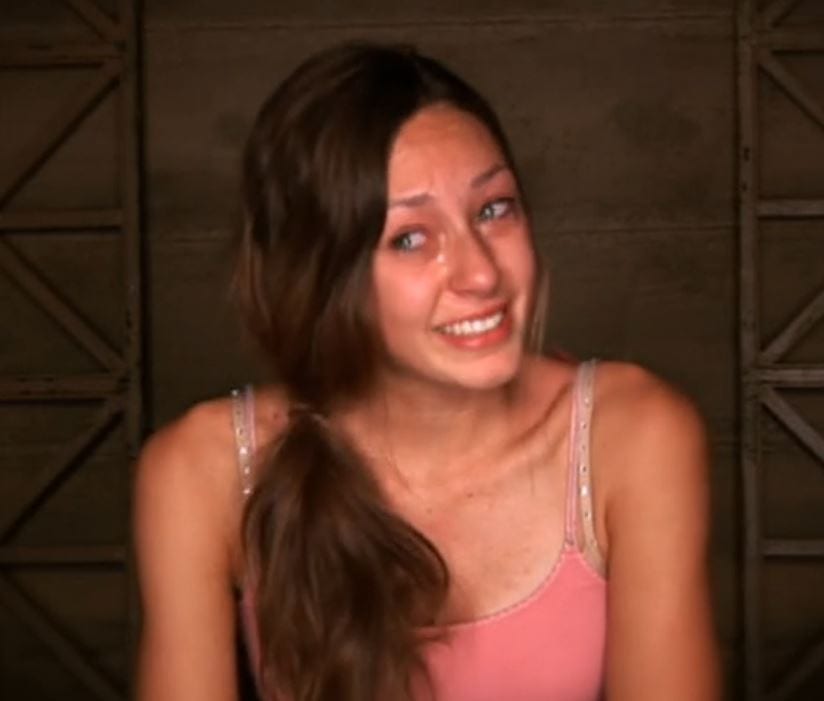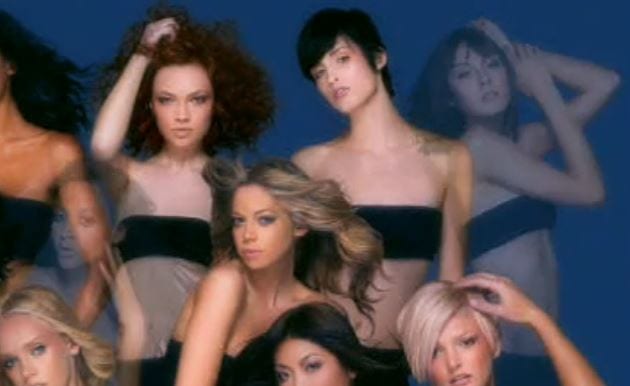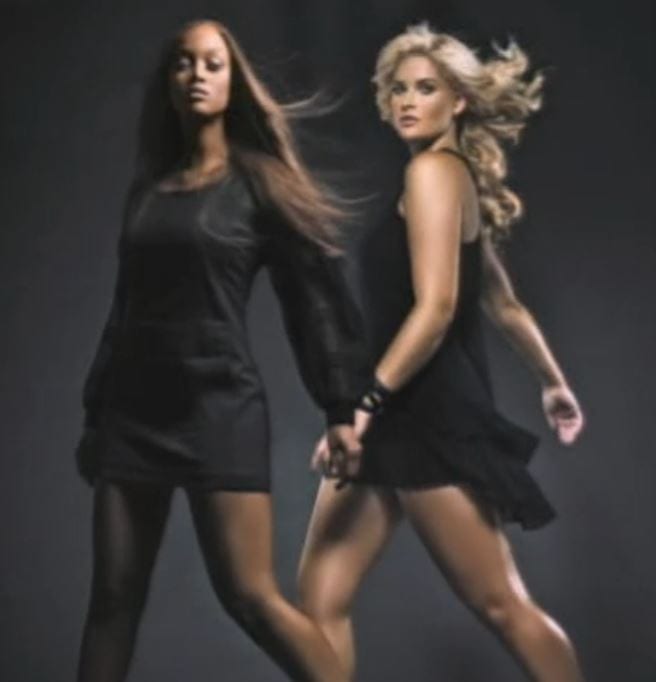Tyra Banks’s reality television competition brainchild, America’s Next Top Model, which debuted in 2003 and has attempted many shiny new iterations since, has never had a perfect track record of politically correct contestants. That’s to be expected when doing a nationwide search for aspiring models, considering the diversity of the American landscape, the young age of competitors, and the reactionary tendencies against PC culture in the early aughts. This, despite Tyra Banks being outspoken on the show, on her own outside projects, and in interviews about the realities of the modeling industry and her strives advocating for models who are diverse in some form, from race, gender and sexuality, to body type.
The problem is that, even on a reality show where as executive producer Tyra has a lot of control over what makes the final edit, many things occur in the house that are never brought forth to judging panels or whatever semblance of authority exists in the augmented reality of reality television.
This is exemplified in two instances of Cycle 10, Episode 5 and Cycle 11, Episode 2, both of which aired in the year 2008. That airdate inarguably impacted their political context. It was an election year for America which eventually resulted in victory for Barack Obama. The media created to be consumed in such a year did not shy away from the changing political landscape; the first photoshoot of Cycle 11 even leaned into this with an election day theme where the models posed outside of ballot boxes.
It was a year that the progressive wave of America was ready to declare, “I am not racist,” with a smile. How could they be? They’ve elected a Black man for president, after all. It was a year where, far more offensive than any racist words or action someone might make, would be the accusation that someone was being racist. In many ways, this incorrect notion ought to feel familiar.
The moment this was presented to us in Cycle 10, episode 5 begins with a simple argument at the model house about the phone schedule. These moments of bickering are the true bread and butter for a show like America’s Next Top Model where the photo shoots and judging panels cannot produce the sheer level of drama required for enjoyable reality television. White contestant Whitney makes the comment during the argument to fellow contestant, Dominique, “I have no reason to respect you,” which continues the back and forth until Dominique throws the dreaded R-word into the room.
In her confessional, Whitney says “Call me a bitch? Yeah, probably. But don’t call me racist.” This makes something that is a serious systemic issue into something that comes across as more of a quirky personality trait.

She goes on: “Like, I’m from the south. You don’t joke about being racist. That isn’t funny. It’s not a joke.” And she does have one thing right— it’s not a joke. It’s not a joke to America and it’s not a joke to the people of color she was affecting when she made racist comments.
In her own confessional, Dominique expounds, “She could be racist to a Jewish white girl with blue eyes and blonde hair. She could be racist towards a Catholic girl with red hair and, like, green eyes.” Which, well… no. Different words would be used for that: she could be anti-Semitic to a Jewish white girl with blue eyes and blonde hair, and she could be prejudiced towards a Catholic girl with red hair and green eyes, and she most definitely has been shown to exhibit racist behavior around the non-white aspiring models who are competing on the show with her. Dominique is close, and we’ll give her points for the message being correct even if the terminology is off.
Whitney continues to push back against this with the all-too-familiar, “My best friend is black!” How many times have we heard that?
Where Whitney’s reaction be being accused of racist behavior was angry affront, Cycle 11’s Hannah took a different approach. No less visceral than anger, she sank into white tears. The catalyst for discussing race in this season was a similar situation of house bickering, this time rooted in a hot tub session where contestant Isis bumped into Hannah while moving seats and Hannah pushed her away in a manner many women present felt was needlessly aggressive.
It is worth noting that Isis is not only a woman of color, but a transgender woman and the show’s first transgender contestant. Even by episode 2, fellow-contestants had not shied away from slinging microaggressions her way.
Discussing the hot tub incident afterwards with Sheena, who is Asian, and Brittany, who is Black and Native American, Hannah justifies the push with, “I just don’t appreciate when people come up and start dancing on me. I’m like, the ‘stereotypical white person’”
Britney challenges the air quotes Hannah slapped on the last phrase, “Well, what’s that?”
“I don’t really like that music,” Hannah says, “Like, I’m not really loud. I’m not gonna walk in the room and just be like ‘Heeeyyyyy!’ like screaming.”
Taking on more emotional labor than they should be required to when Hannah immediately begins to cry about her comments not being well-received, Brittney explains to Hannah, “Even though you’re the ‘stereotypical white girl,’ I’m a black girl, and you know what? Somebody could take it offensively.”
Sheena encourages her, “Just be more conscious and aware of what you put out.” But that’s work— work which Hannah has never had to put in before.
The next day, following activities and challenges, several of the women of color discuss Hannah’s comments. Hearing this, Hannah bemoans, “When you talk about someone when they’re not there, I don’t think you’re giving them the chance to defend themselves.” This is followed immediately by other house members coming to get her so they can all talk it all out. Hannah gets what she wanted: the chance to defend herself, her comments, and her actions. Except that it immediately dissolves into another round of tears, stilting any and all appropriate review of herself.
Contestant Joscelyn, after several minutes of back and forth, attempts to simplify things: “Okay, let me put it this way,” she says, “Are you prejudice?”
Hannah gives a shocked face while the show cuts to her confessional with, “Wow. Didn’t see that one coming.” You didn’t? Hannah, you’re the only one. “Do you have a problem with people of color?” Joscelyn rephrases when Hannah takes her time answering.
“Am I a racist? No,” Hannah answers. “I’m sorry you feel that I’m racist and prejudice—” Note the careful “you” there: this, the language allows, is their problem. Not hers. “—Now it’s time for me to go to sleep, but thank you for critiquing me.”
Cutting to confessional, Hannah is in meltdown mode. “It’s so awful. I can’t believe they’re referring to me as being racist. Wow! That’s not very nice.” Neither is being racist, but here we are.

Discussing the confrontation the next morning, among fellow white contestants, they bemoan that Hannah had walked into a trap. This is, of course, despite the fact that Hannah herself said she wanted to be a part of the conversation.
“If their whole prerogative was to hurt me or to make me cry, I mean. Yeah, you got me,” Hannah says, before going on in her most obtuse observation yet: “That’s like gang rape. That’s like gang violence. Like, seriously. It’s inappropriate.” Clearly, however, few things thus far have been so inappropriate as that comment.
The hardest pill to swallow with these two episodes of two different seasons is the editing involved and therefore the narrative that is formed. Both of these white women, one from Florida and one from Alaska, are presented as the victim. They are presented as being falsely accused by angry contestants of color of racism they do not believe they embody. And despite this narrative being presented to the audience, despite the rolling eyes of black contestants presented alongside the white anger or white tears, it coexists with Whitney and Hannah putting their own racist feet in their own racist mouths.
Both women had different fates on their respective cycles. Two episodes after Hannah’s confrontation, she was dismissed unceremoniously in a challenge elimination, an unusual event that has only happened a handful of times in the show’s 24 seasons.

Whitney, however, wins the competition. Her meltdown in never addressed again by the show, in judging or in any confessionals. She was the first, and so far only, plus-sized model to win the competition, something that arguably influenced editors to downplay her racist tendencies as much as they could. Hannah, with a much shorter run on the show and booted the same week as Isis who was the catalyst for her behavior being called into question, did not require such delicate editing.

Perhaps most telling about how reality television is such a carefully structured reality is that Tyra Banks never had to confront or address these moments on the show. She never had to grapple with her carefully chosen contestants displaying such challenging views in 2008 America, because the scenes were kept safely away from her view at the house where all troublesome content festers.

